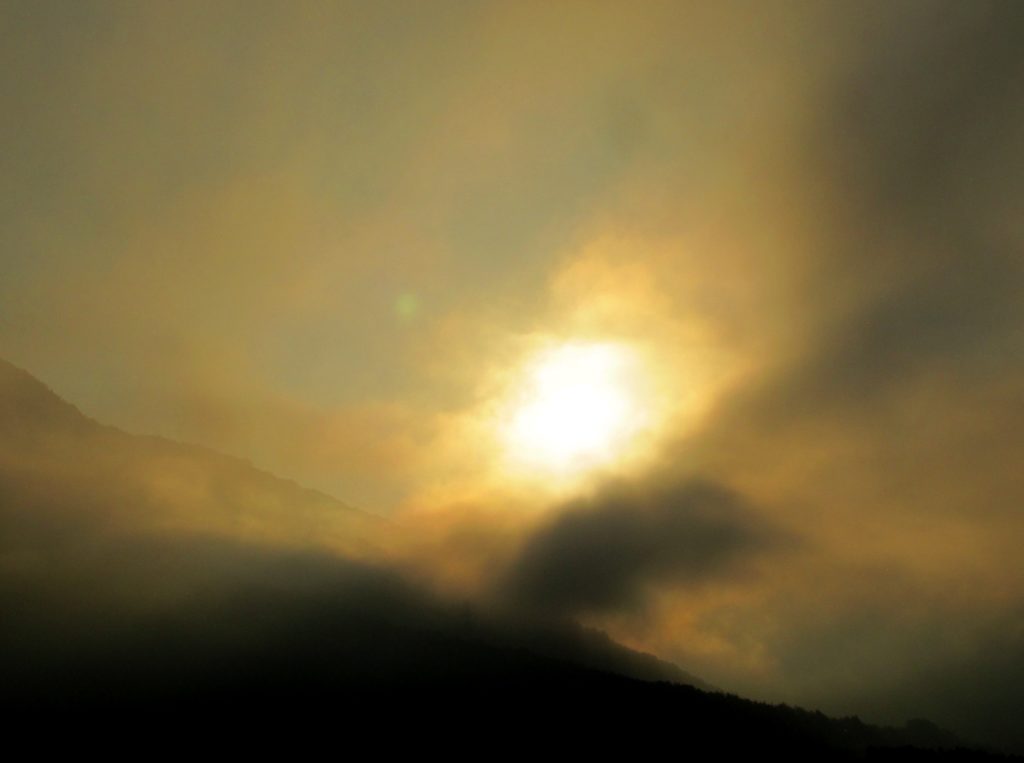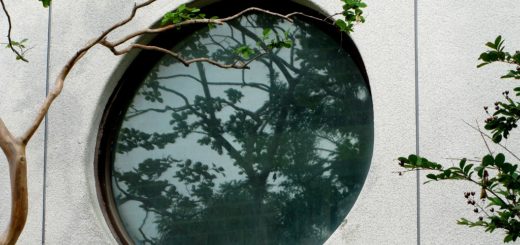Socrates on the View from Our Hollows
Several days ago, I wrote a short piece about Socrates’ description of the Earth to his companions, as he sat in his prison cell awaiting the hemlock. Today, as a spiritual escape from the moral prison formed of modern politics and the mass hysteria of coronavirus, I would like to reflect on one of the key themes of that famous episode in the final Socratic teaching.
He speculated — at a time when no one could have known this empirically — that the Earth was much larger than men normally imagined, and that the people of the known world inhabited just one of many similar “hollows” situated around the sphere. Even more remarkably, to quote from my previous summary, he opined that:
[T]he true surface of the Earth is not the ground we walk on, which we mistakenly call “the Earth,” but rather the upper limits of our atmosphere, where what we call “the air,” which is really a kind of sea formed of mists, meets the ether. Our daily life, he says, is actually lived at the bottom of this intermediate sea, although we cannot perceive it as such until and unless we rise to and through its true surface, into the ether, and glance down at our former home. (Phaedo, 109a-110b)
A student of mine, reading my account, responded with an e-mail seeking further elucidation of this mysterious Socratic description, in the form of two well-framed questions. Her questions in their original form, and my replies with only minor modifications, are presented below.
1) I wonder why Socrates talked about the true surface of the Earth in his dying hour. Why is it important to define it?
Well, he was talking about death, the soul, and wisdom. He used this discussion of the Earth as a way of describing the limits of human knowledge, due to the distorting influence of the body and our physical smallness. Our perspective feels complete to us, because we have the human weakness of imagining we are seeing everything there is to see, or that what we are seeing is all that matters. His point was that what we cannot see is vastly greater than what we can see, and also more essential. The universe — not primarily meaning outer space, the galaxies, and so on, but rather our own planet and our own lives — is therefore best viewed as a beautiful mystery, due to its existing beyond our normal range of vision.
2) I see that the perception that our daily life is lived at the bottom of the intermediate sea is gained on its true surface. Then, what exactly does it mean to perceive that our daily life is lived at the bottom of the intermediate sea? And how is the reality distorted in the air, this intermediate sea?
As explained in (1), above, Socrates is trying to show his friends that our earthly (i.e., physical, bodily) existence limits our understanding. How does the air distort reality? We imagine, for example, that the objects we perceive around us are exactly the way we see them, and that this material reality is all there is. We don’t even consider what is necessary in our rational faculties, and perhaps also in the things themselves, to make our way of perceiving them possible.
I look at you sitting across from me in my office. I see you as a distinct substance, separate from another substance I call “the chair,” and other things I call “the wall,” “the table,” “a pencil case,” and so on. But all I actually see — all that my eyes really take in — is a spray of colors, and maybe some movement within those colors. How do I distinguish among those colors to isolate various identifiably independent substances? How, furthermore, do I separate the distinguished objects themselves into “substances” (a girl, a desk, a chair) and properties of substances (size, relation, position, etc.)? None of that appears to my eyes. And yet I casually say, “I see a girl sitting on a chair across from me, on the other side of my table, with a pencil case in front of her.”
Where does all that information come from? It does not come from my senses. What must be true about the world, or about my mind and its operations, to allow me to have all that information in my head merely “because” my eyes took in a spray of colors? Until I can answer that question, I cannot say that I really understand what I saw, or what it means.
And yet we never think about that in daily life. We just think, “I see a girl sitting on a chair….” Our view of our experience, or rather the experience itself, is distorted, incomplete, lacking essential elements and causal factors. We are missing something.
Socrates’ strange description, during his last philosophical conversation, of the nature of the Earth, and of our earthly perspective, is essential to understanding the profound wisdom of another, even more famous, description from earlier in that very same historically indispensable conversation, namely his account of philosophy as “practicing for death.”



